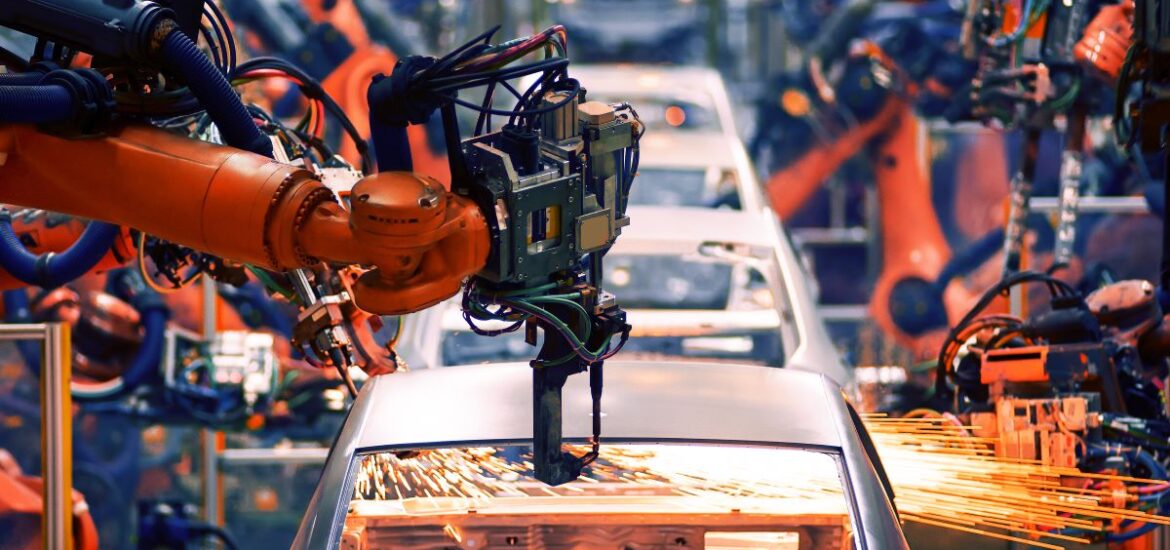AI is becoming more widely used than ever. Could artificial intelligence do your job?
Concerns About Artificial Intelligence

As AI programs like ChatGPT grow, more workers worry about whether they are replaceable by a machine.
According to AI experts, some jobs are at higher risk than others, and the type of work you do determines how worried you should be about losing your job to a bot.
Jobs in Technology

Over the past decade, tech jobs have been in high demand. These careers are highly demanding and require niche expertise, and people pursue higher education to learn things like coding, web design, and app development.
AI’s Efficiency

AI programs, however, may be able to do a lot of this work themselves as they get more sophisticated. These computer programs can work extremely efficiently, and while their accuracy is hit or miss, they get better every day.
Jobs in Writing

Writers spend a lot of time on their craft, researching their work and putting thought and care into their content. Today, it’s easy to tell the difference between content produced by an AI and something written by a human.
How Writers Are Preparing

However, as technology evolves and AI starts to learn nuance, writing jobs could be at risk.
Some writers are preparing by familiarizing themselves with AI’s shortcomings so they can advertise corrections as a service, embracing the fact that AI is not going away anytime soon.
Jobs in Legal Assisting

Legal assistants who primarily read, analyze, and simplify the information presented to them could potentially be made redundant.
AI bots have shown that they are exceptionally skilled in summarizing and creating the kinds of projects that legal assistants typically produce.
AI’s Legal Abilities

AI bots need very specific instructions to get it right but can do a bulk of the technical aspects of legal work.
Jobs in Research

Researchers who perform surveys and polls to gather information from large groups of people are typically very skilled at processing large amounts of information and analyzing it for trends. Unfortunately for them, AI is good at that, too.
AI’s Predictions

Once AI programs have the information they need, they’re good at churning out data based on what they were fed. This makes them good at predicting trends.
Jobs in Tutoring

While schoolteachers and professors will never be replaceable, there is a chance that AI could replace other types of educators.
Tutors, for example, often provide digestible bits of information designed to make sense to a specific audience.
AI’s Cost-Effectiveness

AI can do that, too, at a much lower cost than traditional tutors. Experts recommend leaning in and using AI to enhance your workflow while emphasizing what sets you apart from the computer.
Job’s in Art

Artists who work on commission could be in trouble as AI becomes more accessible to wider audiences. Until recently, if you lacked artistic talent but wanted a specific piece of artwork made, you could commission a digital artist to do it for you.
AI’s Creativity

AI programs are increasingly capable of producing artwork, making people less inclined to pay an artist for their desired work.
There are definite gaps in AI’s abilities – it’s still struggling to create realistic hands in its renderings of humans – but the programs will only get more sophisticated.
Jobs in Mathematics

Mathematicians (including accountants) may find themselves in less demand than they used to be because, when adequately trained, AI can produce accurate math results.
AI’s Ease With Numbers

As its abilities improve, it will be able to take over tasks like completing complicated tax returns that people currently pay CPAs for.
Jobs in Customer Service

Customer service representatives have already been replaced in many ways with AI. Customer service chatbots are becoming the norm for large companies that need to be able to provide service to a high volume of customers.
AI’s Learning Abilities

It’s not far-fetched to assume that AI will eventually be able to provide voice support as well, giving clients a complete customer service experience without needing to involve a human employee.
Jobs in Telemarketing

If you own a cell phone, you’ve probably received spam calls from bots trying to sell you something or convince you to support a political campaign. In the past, calls like that were from actual humans.
AI’s Technological Advancements

Telemarketers may be in a dying profession as AI learns to deliver sales pitches, make phone calls, and record responses on its own.
AI Unlikely to Completely Replace Humans at Work

Many jobs could face changes as AI advances, but it’s unlikely ever to be able to reproduce the touch of humanity that having a live team brings to a project.
There’s a risk that AI will take over some jobs because companies will want to save money, but at the end of the day, humans are irreplaceable, and good employers know that.
21 States Where Squatters Can Legally Claim Your Property

Discover how squatters’ rights, or adverse possession, are more than just legal jargon—they’re stories of unexpected twists in the world of real estate. From sunny California to the historical landscapes of Pennsylvania, here’s how these laws could turn the tables on homeowners and squatters alike. 21 States Where Squatters Can Legally Claim Your Property
14 Things That Are Banned in the U.S. but Totally Fine Elsewhere

Ever feel like America’s rulebook was written by someone with a dartboard? Across the pond or down under, things get even wackier. Let’s take a walk on the wild side of global “Do’s” that are definite “Don’ts” in the Land of the Free. 14 Things That Are Banned in the U.S. but Totally Fine Elsewhere
25 American States Nobody Wants to Visit Anymore

Across the United States, some states capture the hearts and itineraries of many, while others remain quietly on the sidelines, overshadowed or misunderstood. These 25 states, facing what you might call a popularity crisis, are brimming with hidden wonders, cultural riches, and natural beauty, awaiting those willing to look beyond the usual tourist trails. 25 American States Nobody Wants to Visit Anymore
20 Foods That Are Cheaper to Eat Out Than Making at Home

In a world where convenience often wins, certain culinary delights come with a lower price tag when enjoyed at a restaurant rather than crafted in your own kitchen. Here are twenty foods that might save you both time and money when indulged in at your favorite eatery. 20 Foods That Are Cheaper to Eat out Than Making at Home
17 Things You’re Paying For, but You Don’t Have To

In the land of the free, there’s a price tag on everything, but savvy Americans know better than to open their wallets for just anything. Here are 17 expenses you’ve been shelling out for without realizing there’s a cheaper or even free alternative. 17 Things You’re Paying For, but You Don’t Have To
The post The Top Jobs Threatened by AI and Automation first appeared on From Frugal to Free.
Featured Image Credit: Shutterstock / Jenson.
The content of this article is for informational purposes only and does not constitute or replace professional financial advice.
